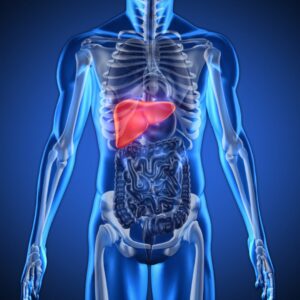Soybeans, scientifically known as Glycine max, are a species of legume native to East Asia, particularly China. They have been cultivated for thousands of years, initially as a source of protein and oil. Today, soybeans play a crucial role in global agriculture and food production, offering a wide range of advantages and functions across various industries.
Advantages of Soybeans
- Nutritional Value:
Soybeans are renowned for their high nutritional value. They are rich in protein, containing all nine essential amino acids necessary for human health. Additionally, soybeans are an excellent source of dietary fiber, vitamins (such as folate, vitamin K, and vitamin C), minerals (including calcium, iron, and magnesium), and phytonutrients. - Protein Content:
Among plant-based foods, soybeans have one of the highest protein contents, making them a valuable protein source, especially for vegetarians and vegans. Soy protein is comparable in quality to animal protein, making it an essential component of many meat substitutes and protein supplements. - Versatility:
Soybeans are incredibly versatile and can be processed into various products, including soy milk, tofu, tempeh, soy sauce, and soybean oil. This versatility contributes to their widespread use in culinary applications, catering to diverse dietary preferences and cultural cuisines worldwide. - Sustainability:
Soybeans are environmentally sustainable crops. They have nitrogen-fixing properties, which means they can convert atmospheric nitrogen into a form that plants can use, reducing the need for synthetic fertilizers. Additionally, soybeans have a relatively low carbon footprint compared to animal-based protein sources, making them a more environmentally friendly choice. - Health Benefits:
Consumption of soybeans and soy-based products has been linked to various health benefits. These include reducing the risk of heart disease by lowering cholesterol levels, improving bone health due to their high calcium and magnesium content, and alleviating menopausal symptoms in women due to their phytoestrogenic properties.
Functions of Soybeans
- Food:
Soybeans are primarily cultivated for food production. They serve as a staple ingredient in many cuisines worldwide, offering a nutritious and affordable source of protein, particularly in regions where meat is scarce or expensive. Common soy-based foods include tofu, soy milk, miso, edamame, and soy sauce. - Animal Feed:
Soybeans are a crucial component of animal feed formulations, especially for livestock such as poultry, swine, and cattle. Soybean meal, a byproduct of soybean oil extraction, is rich in protein and is widely used as a feed ingredient to promote animal growth and development. - Industrial Applications:
Soybeans have numerous industrial applications beyond food production. Soybean oil, extracted from soybeans, is used in the manufacturing of biodiesel, industrial lubricants, paints, solvents, and various other products. Soy-based polyols are also used in the production of polyurethane foam, contributing to the sustainability of the construction and automotive industries. - Soil Improvement:
Soybeans play a crucial role in crop rotation systems due to their ability to fix nitrogen in the soil. By planting soybeans in rotation with other crops, farmers can improve soil fertility, reduce the need for synthetic fertilizers, and enhance overall crop yields.
Usefulness of Soybeans
Soybeans are incredibly versatile and can be used to make a wide range of products, both for consumption and industrial applications. Here are some of the most common products made from soybeans:
- Tofu (Bean Curd): Tofu is a popular soy-based food made by coagulating soy milk and pressing the resulting curds into soft, white blocks. It serves as a nutritious source of protein and is a staple ingredient in vegetarian and vegan diets.
- Soy Milk: Soy milk is a dairy-free alternative to cow’s milk made from soaking, grinding, and straining soybeans. It is often fortified with vitamins and minerals to enhance its nutritional value and is commonly used as a beverage or in cooking and baking.
- Edamame: Edamame are young, green soybeans harvested before they mature. They are typically steamed or boiled and served as a snack or appetizer, often sprinkled with salt.
- Tempeh: Tempeh is a fermented soybean product originating from Indonesia. Cooked and fermented soybeans are pressed into a dense cake, providing a rich source of protein and a nutty flavor. Tempeh is commonly used in vegetarian and vegan cooking as a meat substitute.
- Soy Sauce: Soy sauce is a condiment made from fermented soybeans, wheat, salt, and water. It is widely used in Asian cuisine to add flavor to dishes and as a dipping sauce.
- Soybean Oil: Soybean oil is extracted from soybeans and is one of the most commonly used cooking oils worldwide. It has a neutral flavor and high smoke point, making it suitable for frying, baking, and salad dressings.
- Soy Flour: Soy flour is made by grinding roasted soybeans into a fine powder. It is used as a gluten-free alternative to wheat flour in baking and cooking and adds protein and nutrients to recipes.
- Soy Protein Isolate: Soy protein isolate is a highly refined form of soy protein with most of the fats and carbohydrates removed. It is used as a food additive to boost protein content in products like protein bars, shakes, and meat analogs.
- Soy-based Meat Alternatives: Soybeans are commonly used to create meat alternatives such as veggie burgers, soy-based hot dogs, sausages, and meatballs. These products mimic the texture and taste of meat while providing a plant-based protein source.
- Biodiesel: Soybean oil can be processed into biodiesel, a renewable fuel source used in diesel engines. Biodiesel derived from soybeans offers a more environmentally friendly alternative to traditional petroleum-based diesel fuel.
These are just a few examples of the myriad products that can be made from soybeans, highlighting their versatility and importance in both culinary and industrial applications.
Conclusion
Soybeans are an incredibly versatile and valuable crop with numerous advantages and functions. From their nutritional benefits and sustainability to their wide range of culinary and industrial applications, soybeans play a vital role in global agriculture and food production. As the demand for plant-based proteins and sustainable alternatives continues to rise, soybeans are likely to remain a staple ingredient in diets and industries worldwide.







